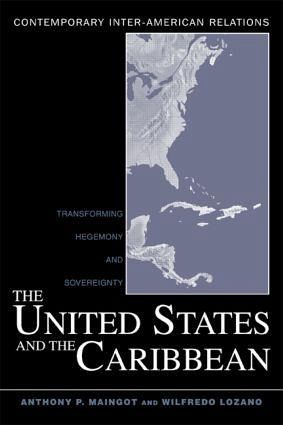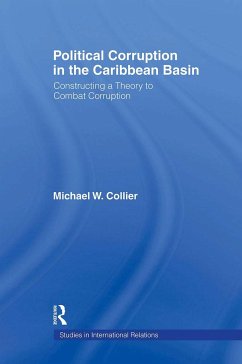
The United States and the Caribbean
Transforming Hegemony and Sovereignty
Versandkostenfrei!
Versandfertig in 1-2 Wochen
66,99 €
inkl. MwSt.
Weitere Ausgaben:

PAYBACK Punkte
33 °P sammeln!
This volume provides the first comprehensive assessment of post-Cold War US-Caribbean relations. Focusing on Haiti, the Dominican Republic and Trinidad-Tobago, the book looks at the political history of the region during the Cold War years, the region's current political economy, international security, and issues of migration and crime. Spanning the Caribbean's linguistic and cultural sub regions (Spanish, French, English, and Dutch) it calls attention to the achievements, setbacks, and concerns that are common to the region. The United States and the Caribbean will be of interest to students...
This volume provides the first comprehensive assessment of post-Cold War US-Caribbean relations. Focusing on Haiti, the Dominican Republic and Trinidad-Tobago, the book looks at the political history of the region during the Cold War years, the region's current political economy, international security, and issues of migration and crime. Spanning the Caribbean's linguistic and cultural sub regions (Spanish, French, English, and Dutch) it calls attention to the achievements, setbacks, and concerns that are common to the region. The United States and the Caribbean will be of interest to students and scholars of economics, geography and politics and international relations in general.














